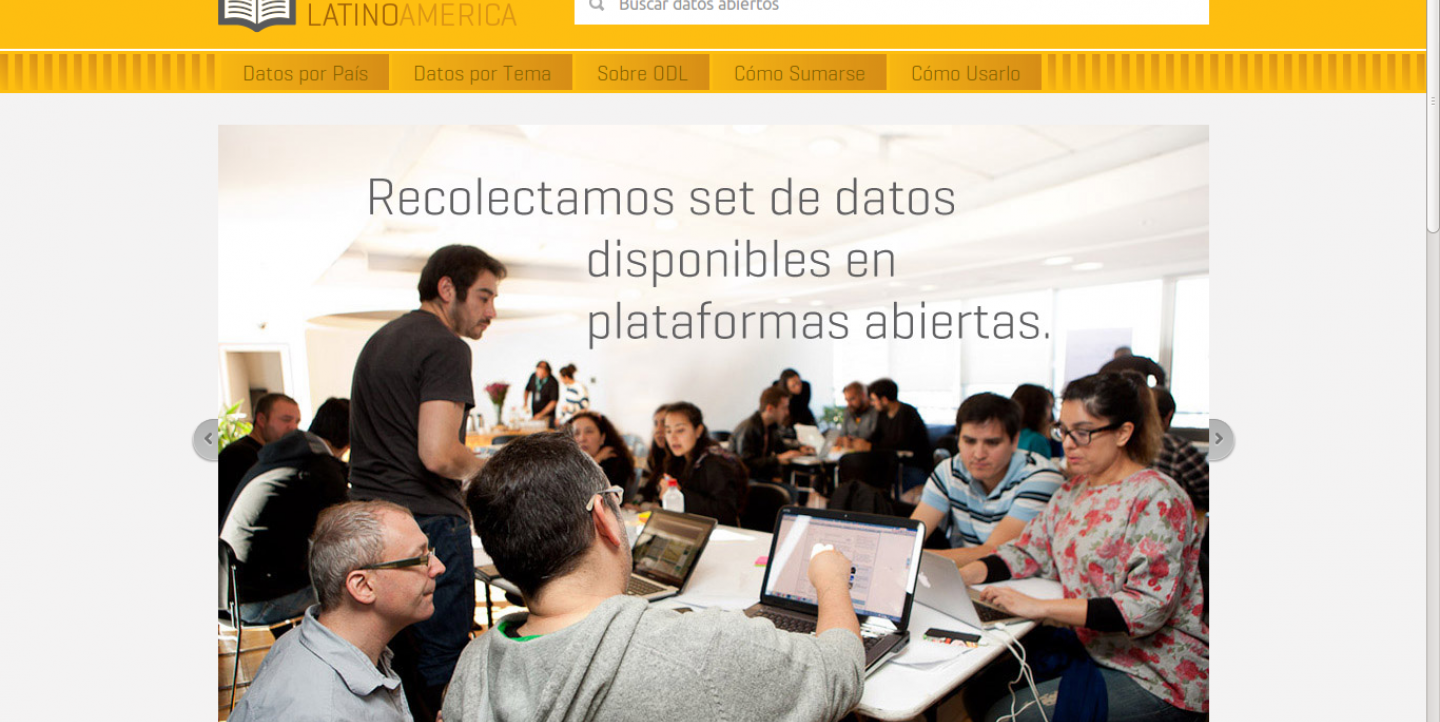The road to the future of news is littered with lost datasets.
A day or so after every hackathon and meeting where a group has come together to analyze, compare and understand a particular set of data, someone tries to remember where the successful files were stored. Too often, no one is certain.
We can’t do data journalism without reliable data: accurate source data is just as important to data journalism as a reliable human source is to a reporter’s interview. We need a central repository where you can share the data that you have proved to be reliable. Our answer to this need: OpenData Latinoamérica, which we are leading as ICFJ Knight International Journalism Fellows.
Inspired by the open data portal created by ICFJ Knight International Journalism Fellow Justin Arenstein in Africa, OpenData Latinoamérica aims to improve the use of data in this region where data sets too often fail to show up where they should, and when they do, are scattered about the web at governmental repositories and multiple independent repositories where the data is removed too quickly.
The aim is to create a data repository to store information coming systematically from governments throughout the region, from non-governmental organizations or from journalists and hackers who have obtained data themselves. This way, we will be able to quickly group invaluable information resources around a community interested in using open data, and we can promote the release of new data.
The platform will be maintained by the regional Hacks/Hackers network in Latin America and by other organizations related to the Open Data movement. It will be nourished at hackathons and by agreements with regional governments to release information that will then be used to develop applications for news, civic engagement and the third sector. It is known that in Latin America, there is an absence of large, concentrated datasets, and a great risk of losing that information as time passes. By bringing the data sets together in a central repository people can use across the region, OpenData Latinoamérica will be an invaluable resource for journalists, organizations, governments and international agencies.
Why will this succeed, when in recent years, dozens of similar attempts appear to flourish, but then fail? First, using Junar (a platform used by the governments of Chile and Costa Rica, among others) and its technology ensures sufficient scale to be able to manage, index, and/or replicate data sets of governments and organizations.
Second, because it will be managed by the community and add value to the Hacks/Hackers network of journalists and programmers that this year will expand in Latin America. This means each hackathon, scrape-athon, and other event related to open data can be used to organize OpenData Latinoamérica as a platform for using and publishing data.
Third, because it has the support of the World Bank Institute, which will give it scale and sustainability, and ensure that the "demand side" of open data will be well-nurtured over time.
The portal will be used at two big upcoming events: Bolivia’s first DataBootCamp and the Conferencia de Datos Abiertos (Open Data Conference) in Montevideo, Uruguay. Then, we'll hold a series of hackathons and scrape-athons in Chile, which is in a period of presidential elections in which citizens increasingly demand greater transparency. Releasing data and developing applications for accountability will be the key.
Your organization can take part in OpenData Latinoamérica. To apply, answer a simple form agreeing to meet the standard criteria for open data. Once the application is approved, you will receive an account to start running and managing open data, becoming part of the community.
Together we are stronger, and we can do great things. We’re waiting for you at OpenDataLatinoamérica.
Mariano Blejman is an editor and media entrepreneur specializing in data-driven journalism. Read about his Knight Fellowship here.
Miguel Paz is a Chilean journalist and founder and CEO of Poderopedia, a data journalism website that highlights links among Chile’s business and political elites. Read about his Knight Fellowship here.

